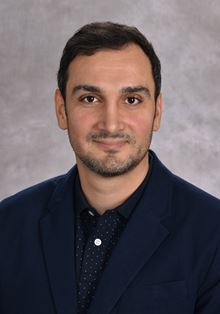31-40 of 1691 Results Found
Application
Thank you for your interest in applying to Phoenix Children's Postdoctoral Residency/Fellowship. Qualifications Applicants should have substantial clinical experience with children. PhD/PsyD in Psychology Completion of APA-accredited pre-doctoral internship, experience in
Resources & Accomplishments
Our Patient and Family Advisory Councils as well as our Patient/ Parent Workgroups collaborate as a team to promote positive change throughout the Phoenix Children’s network. Here are some of our recent notable accomplishments: Family Community Resource Guides Our PFACs and PPWGs
Condition
Watching Your Weight Why do you need to watch your weight? According to the CDC, more than 7 in 10 U.S. adults older than age 20 are either overweight or obese. Why is excess weight a concern? It may cause new health problems or worsen ones you already have. Staying at a healthy
Valley Pediatric Triage
Valley Pediatric Triage (VPT) is operated by Phoenix Children’s and offers pediatricians and their offices the opportunity to purchase subscription plan services to help provide an extra layer of coverage in handling patient calls after normal business hours. VPT’s Hours of
Condition
Ataxia Telangiectasia (A-T) What is ataxia telangiectasia (A-T)? Ataxia telangiectasia is a rare childhood disease that affects the nervous system, immune system, and other body systems. It is an inherited disease. The symptoms of A-T often begin to show up by age 5. How to say
Condition
Achondroplasia in Children What is achondroplasia in a child? Achondroplasia is the most common type of rare genetic bone disorder. The strong, flexible tissue called cartilage is not made into bone as normal. This causes a series of signs, such as short arms and legs and a large

Condition
Depression and Suicide Most people who die by suicide have a mental health issue. It may be a depressive or substance abuse disorder. They may feel lonely, depressed, or isolated. They may have had a traumatic life experience. Many of the warning signs of suicidal feelings are
Condition
Peyronie Disease What is Peyronie disease? Peyronie disease causes hard, flat plaque to form under the skin on the tissue of the penis. The plaque often starts as an inflammation that may turn into scar tissue. The plaque builds up inside the penis in the thick elastic membrane
Contact - Thank You
Thank you for contacting us through our website. Your message has been received and we will be in touch shortly.
